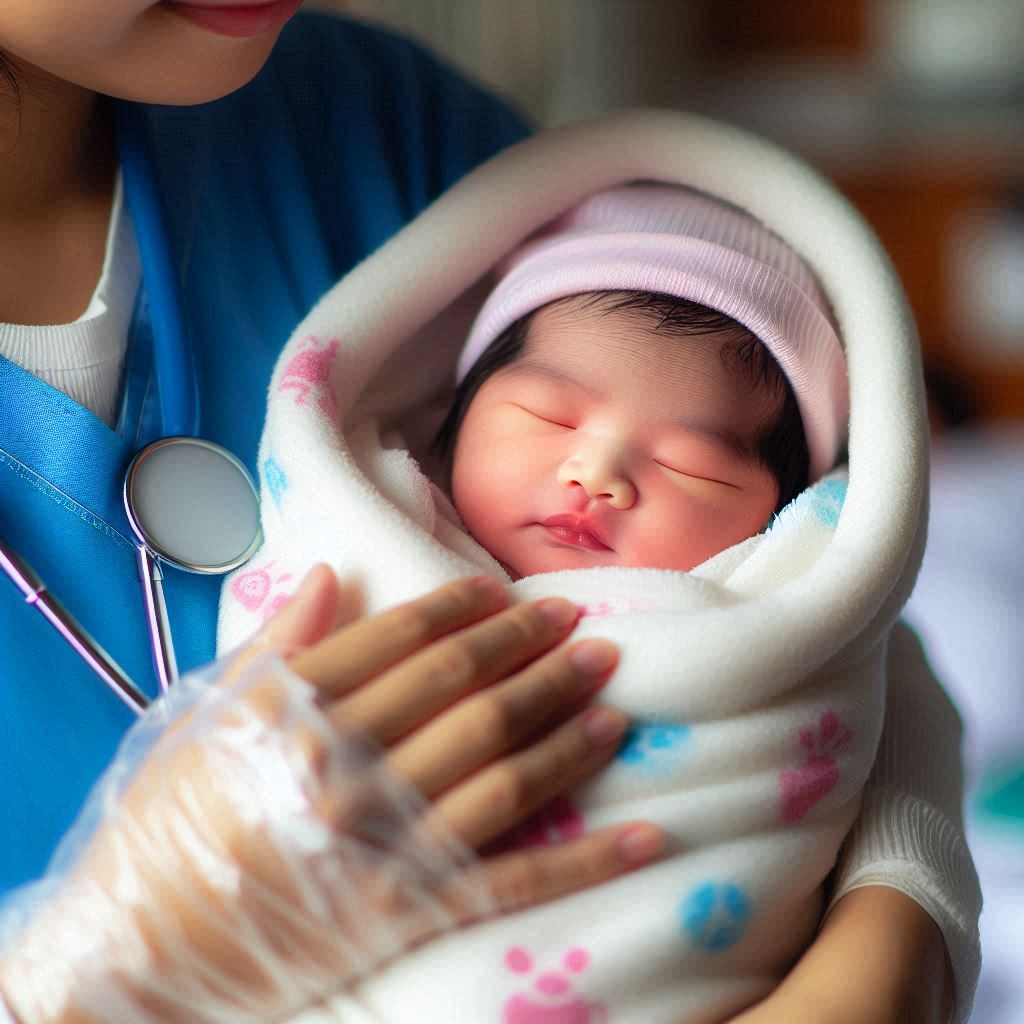99.1°F to °C: Understanding Fever in Babies
As a parent, you’re always on high alert when it comes to your baby’s health. One of the most common concerns is fever. If you’ve noticed your little one’s temperature is 99.1°F, you might be wondering what this means in Celsius and whether it’s something to worry about. Let’s dive into this topic and give you all the information you need to understand and handle your baby’s temperature like a pro.
Quick Answer
99.1°F is equal to about 37.3°C. This temperature is not considered a fever in babies, but it’s on the higher end of normal. Keep reading to learn more about what this means for your baby’s health.
Understanding Baby Temperatures: The Basics
Before we get into the nitty-gritty, let’s cover some ground rules about baby temperatures. Babies aren’t just tiny adults – their bodies work differently, and that includes how they regulate temperature.
What’s Normal for a Baby?
A normal temperature for a baby can range from 97.9°F to 99°F (36.6°C to 37.2°C). This might change a bit throughout the day, usually being a tad higher in the evening. It’s like their little bodies have their own daily rhythm!
Converting 99.1°F to Celsius: Let’s Do the Math
Okay, time for a quick math lesson (don’t worry, it’s not too scary). To change Fahrenheit to Celsius, we use this formula:
Celsius (°C) = (Fahrenheit (°F) - 32) × 5/9
Let’s plug in 99.1°F:
Celsius (°C) = (99.1 - 32) × 5/9 Celsius (°C) ≈ 37.3
So there you have it – 99.1°F is about 37.3°C. Easy peasy!
Is 99.1°F (37.3°C) a Fever in Babies?
Here’s the good news: 99.1°F (37.3°C) is not considered a fever in babies. Doctors usually say a baby has a fever when their temperature is 100.4°F (38°C) or higher. So, while 99.1°F is on the warmer side, it’s still in the normal range.
Temperature Guide for Quick Reference
| Temperature Range (°F) | Temperature Range (°C) | What It Means |
|---|---|---|
| 97.9°F – 99.0°F | 36.6°C – 37.2°C | Normal |
| 99.1°F – 100.3°F | 37.3°C – 37.9°C | Borderline – keep an eye on it |
| 100.4°F and above | 38°C and above | Fever – time to take action |
When to Worry: Signs to Watch For
Even though 99.1°F isn’t a fever, it doesn’t mean you should ignore it completely. Here are some things to keep an eye out for:
- Is your baby acting differently? Less active or more fussy than usual?
- Are they eating and drinking normally?
- Do they have any other symptoms like throwing up, runny poop, or a rash?
- Is your baby younger than 3 months? In this case, even a temp of 99.1°F might be worth a call to the doctor.
Remember, you know your baby best. If something feels off, it’s always okay to check with a doctor.
My Baby’s First “Almost Fever”: A Personal Story
I remember the first time my daughter’s temperature hit 99.1°F. She was about 6 months old, and I was a nervous wreck! Here’s how it went down:
It was a regular Tuesday evening. I had just finished feeding Lily when she felt a bit warm to the touch. Out came the thermometer, and there it was – 99.1°F. My heart started racing. Was this the start of her first fever? Should I call the doctor?
After taking a deep breath, I remembered what I’d learned about baby temperatures. I knew 99.1°F wasn’t technically a fever, but I kept a close eye on her. I checked her temperature again in an hour – still 99.1°F. She was playing and smiling, eating well, and had a normal diaper. By bedtime, her temperature was back to 98.6°F.
This experience taught me a valuable lesson: not every warm forehead means trouble. Sometimes, babies just run a little warm, especially in the evening. Knowing the numbers and what they mean can save a lot of worry!
How to Take Your Baby’s Temperature: The Right Way
Taking a baby’s temperature isn’t as simple as sticking a thermometer under their tongue. Here’s a quick guide to getting it right:
- Choose the right thermometer: Digital thermometers are your best bet. They’re quick, accurate, and easy to use.
- Pick the right spot: For babies under 3 months, a rectal temperature is most accurate. For older babies, you can use an ear or forehead thermometer.
- Be gentle: Whatever method you use, always be gentle. Your baby might not love having their temperature taken, but it shouldn’t hurt.
- Wait for the beep: Most digital thermometers will beep when they’re done. Don’t rush it!
- Clean up: Always clean your thermometer with soap and water or alcohol wipes after each use.
Keeping Your Cool When Things Heat Up
It’s normal to feel worried when your baby’s temperature isn’t “perfect”. Here are some tips to help you stay calm:
- Know the numbers: Understanding what different temperatures mean can help you make smart decisions.
- Trust your instincts: If something feels off, it’s okay to call the doctor, even if the temperature isn’t high.
- Keep a log: Writing down temperatures, times, and any other symptoms can help you spot patterns and give your doctor good information if needed.
- Stay prepared: Keep your thermometer, some fever-reducer (if your doctor okays it), and the doctor’s number handy.
When to Call the Doctor: Better Safe Than Sorry
While 99.1°F isn’t usually cause for alarm, there are times when you should reach out to your pediatrician:
- If your baby is under 3 months old and has any temperature above their normal
- If the temperature goes above 100.4°F (38°C) at any age
- If your baby has other symptoms along with the elevated temperature
- If the slightly elevated temperature lasts for more than a day or two
- If your gut tells you something’s not right
Remember, doctors are there to help. They’d much rather you call and have it be nothing than not call when it’s something.
Wrapping It Up: What 99.1°F Means for Your Baby
So, let’s bring it all together. A temperature of 99.1°F (37.3°C) in your baby is:
- Not a fever
- On the high end of normal
- Something to keep an eye on, but not usually a cause for immediate concern
- A good reminder to pay attention to your baby’s other symptoms and behaviors
Remember, every baby is unique. What’s normal for one might be high for another. The key is to know your baby’s usual patterns and to trust your parental instincts.
Your Next Steps
Now that you’re armed with this information, here’s what you can do:
- Keep tracking your baby’s temperature if it stays at 99.1°F or goes higher
- Watch for any changes in eating, sleeping, or behavior
- Make sure your baby is comfortable – not too bundled up or too cold
- If you’re worried, don’t hesitate to call your pediatrician
Parenting comes with lots of worries, but understanding your baby’s temperature doesn’t have to be one of them. You’ve got this!
Remember, this information is a guide, not a replacement for professional medical advice. Always consult with your pediatrician for concerns about your baby’s health. Stay cool, and happy parenting!

Jessica Winter is a passionate parenting blogger with two years of experience guiding new and seasoned parents through the joys and challenges of raising babies. Her insightful posts blend personal anecdotes with expert advice to offer a warm and practical perspective on modern parenting.

